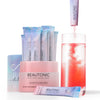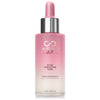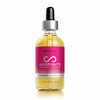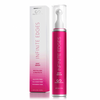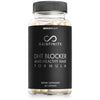
Signs You Should be Getting a Hair Check-up!
Like our mood swings, our hair has its ups and downs as well. However, if you've seen strange or continuous changes in your hair, it's time to get to the bottom of things. Our hair, after all, may offer us a peek into our bodies.
When you take a shower, have you ever been surprised by the quantity of hair that comes out of the faucet? Over-shedding may be an early sign of an even more severe problem since healthy hair sheds between 50 and 100 hairs each day after being shampooed.
Dermatologist Paradi Mirmirani, MD, of Kaiser Permanente, California, adds that nutritional deficiencies and other underlying medical conditions might be at play, therefore seeing your doctor as soon as possible is advised.
Whether you're unsure if you need to consult a hair specialist, here are a few signs that show that you should be getting a hair checkup:

1. Abnormal Hair Loss
We've all had, or still have, a fair amount of hair fall when brushing our hair, and we assume it's normal. Hair loss isn't just caused by using the incorrect products, though. For those who find large amounts of hair on their brushes and/or pillowcases, they may be battling with alopecia, which is quite a serious disease, therefore it's best to get help from a hair loss specialist before things get out of hand.
2. Hair Thinning
You used to have hair that was as thick and full as ever before. Your hair, on the other hand, seems to be thinning at an alarming rate. This isn't just a sign of becoming older; it might be a sign of a more severe hair issue.
If you can't solve this condition at home using a different shampoo or any other home treatments, you should see a trichologist. Trichologists can give you a solid prognosis and help you repair the issue before you become bald, so don't wait too long.
3. Excess Dandruff On the Hair And Scalp
A dry scalp is the most common cause of dandruff. Dandruff is something that almost everyone has experienced at some point in their lives. However, it's critical to prevent things from spiraling out of control. Hair experts are needed if you have persistent dandruff. This is due to the fact that eczema or yeast or fungal infestation on the scalp may occasionally generate severe dandruff.
4. Inability to Grow Or Maintain Eyelashes Or Eyebrows
Having an issue with your hair isn't only confined to your head. Alopecia areata, or thinning of the hair on the head, such as on the eyelashes and brows, is also a cause for concern. If you find that your eyebrows or eyelashes are thinning, make an appointment with a trichologist right away. It is much simpler to treat this condition while it is still in its infancy.
5. Patchiness
Have you noticed sudden baldness on your scalp? The chances of growing bald are high if you don't do something about it. In the end, going to a trichologist will help you figure out what's wrong and how to correct it without having to cut off your gorgeous hair.
6. Little Change On the Scalp
In the end, it's only you who can tell if your hair isn't feeling right. If you do have long hair, it may seem frizzier or the ponytail may be thinner, allowing you to see more of your scalp. It's important to keep an eye out for these little changes since they might be an indication that such hair is falling and needs to be checked out.
6 Signs That Show You Have A Healthy Hair
Healthy, shiny hair is what some of us are striving for. Exactly how does it look? Imagine bouncy hair that resists breaking and retains its style. As well, they are healthy attributes that may be more readily developed by certain people than others.
The most important aspect of keeping our hair healthy and beautiful is our genetics. However, variables such as heat, UV, as well as chemical damage may also have an impact. You're not sure whether your hair is in good health? Check out all the following six signs to understand where your hair falls.
Smooth and Shiny
It's a good assumption that if hair seems smooth, it's also healthy. Because the cuticle is smooth and flat, it produces the sought-after shine. A sponge-like shaft is protected by the cuticle, which has a shingle-like appearance. The cuticle works best whenever the "shingles" are closely overlaid on top of one another. When the cuticle is properly conditioned, light reflects off of it, making your hair seem glistening.
Excellent Elasticity
Your hair's incredible elasticity is attributed to that stunning bouncy look that lasts all day. You may get whatever hairstyle you like, from enormous blowouts to tight curls, thanks to this quality. If your hair lacks elasticity, it is more prone to breakage and frizz, which is why it is important to maintain a healthy level of elasticity. Check the suppleness of your hair while it is still damp. Stretch a strand of hair just a little bit. When you release it, the strand should spring back into place.
Shed Only a Few Strands Everyday
A follicle's development stage might last anywhere from 2 to 8 years, depending on the kind of hair. A new strand of hair develops in its place after that period. As a general rule, most persons with good hair should anticipate losing between 80 and 90 percent of their hair at any one moment, and up to 100 hairs every day. Patients who often experience hair loss above this should seek medical attention for possible dermatological or other health issues.
Detangles Easily
Healthy closed cuticles are easy to brush through because of their flat surface. Having a higher cuticle causes hairs to get tangled when they get stuck together. Hair might be tough to separate because of its rough outer layer, but when it does, you'll know whether your hair is in good health.
No Frizz from a Little Moisture
When the cuticle is broken and raised, water may more readily infiltrate the sponge-like shaft underneath, resulting in frizz. Getting moisture under the cuticle is more difficult when it is tight and flat on the shaft. Hair that is in good health is less sensitive to environmental dampness.
Minimum Breakage
If you see your hair breaking more often than usual, you may have an unhealthy head of hair. It is easy for hair to break off and leave harsh raw ends when it is overworked and over-exposed. The hair surrounding your face is the most susceptible to heat damage, so pay attention to the condition of the strands there. If there isn't much breakage, congrats! Your hair is in excellent health!
Hair Symptoms May Indicate a Health Issue
No matter how much time passes between now and the last time you had your hair done, the thought of changing up your look is undoubtedly on your mind at least once every day.
However, you may be overlooking important information that your hair is providing about your health. A variety of health issues have been linked to changes in the appearance, feel, and/or thickness of a person's hair.
Find out whether thinning hair is a sign of a health issue, genetics, anxiety or malnutrition with these simple tests.
Gray Hairs Can Be Caused by Genetics and Stress
It's no secret that stress may cause hair to turn gray, and research on mice published in Nature suggests that long-term stress may lead to graying hair by inducing DNA damage and lowering the availability of pigment-producing neurons in hair follicles. Hair loss is another side effect of stress.
Gray hair may be caused by oxidative stress, another sort of stress. Dr. Paradi Mirmirani of The Permanente Medical Centre in Vallejo, California, explains that "oxidative stress" (when cell-damaging radicals hinder the body's healing mechanisms) may disrupt pigment-producing cells in the skin.
As you become older, your hair follicles generate less pigment, thus going gray is a normal aspect of aging. For further information, Dr. Mirmirani suggests asking your parents the age they were when their hair began to turn gray, and you may follow in their footsteps. As it turns out, a Nature Communications research released in March 2016 was the first to find the gene that causes gray hair.
Hair Loss May Indicate Anemia
You should get your iron levels checked if you notice an increase in the amount of hair in your hairbrush or even on the floor of your shower. A blood test is done when a patient complains about hair changes, Mirmirani explains. Vegetarians and women with heavy periods, according to her, are more at risk of having hair changes caused by low iron, thus she's more likely to request this blood test.
Although the exact reason for hair loss due to low iron levels is unknown, dermatologist Rebecca Baxt, MD, of Paramus, New Jersey, believes that iron may play a role in hair growth as well. For those who are iron deficient, the doctor may recommend taking a supplement or recommending that you increase the amount of iron in your diet.
Hair loss may also occur (temporarily) when estrogen levels suddenly fluctuate. This is most often seen following pregnancy or the discontinuation of birth control.
3 Hair Care Mistakes to Avoid for a Healthy Hair
If you wish to maintain luscious and excellent hair, there are several mistakes or products you have to steer clear of. Below are some of the mistakes you should avoid:
1. Using the Wrong Washing Method
Some of us may be surprised to learn that we aren't shampooing our hair the ideal way it ought to be done. To maintain a salon-fresh look for so long, it's partly because the stylist thoroughly works the shampoo into your hair, massages your scalp, and makes sure that not a single strand of hair is left unwashed. When the lather isn't nearly thick enough, stylists often add a short spritz of water.
Using the appropriate method would save your hair from unnecessary damage and help you maintain its beauty and lush appearance.
2. Toxic Shampooing
In reality, the more often you wash your hair, the more often you'll notice that it needs a new wash. The reason for this is that your hair may be overcompensating if you wash it too regularly and strip it of its natural oils. If your scalp is producing more oil, your hair will get greasy in a matter of days.
If you are someone who likes to wash their hair frequently, try switching to a sulfate-free shampoo like HAIRFINITY Gentle Cleanse Shampoo. This shampoo will clean your hair without stripping it of its natural oils, thus leaving it with it's natural moisture but no build-up.
Instead of washing your hair, try using dry shampoo instead. Overusing the product may cause scalp buildup, which can result in greasy hair or even hair loss in the most extreme cases. Instead, structure your hair-washing regimen around your workouts, social events, etc. Your strands will have the day off while they're not in the spotlight.
3. Using the Wrong Products for Your Hair
So you splashed out $40 to try a miraculous product your closest friend recommended, only to discover that it left your hair looking greasy by day two. Here's some bad news: not every product is a success. In reality, it's quite unlikely that there is a single product that works for all hair types, textures, and thicknesses.
You may ask your friends and family for recommendations, but in the end, you may be better off consulting with your hairdresser about which solutions are most suited to your hair type. However, your stylist may recommend a product line that is available at the salon. Your stylist is more than happy to help you find alternatives if such items don't fit within your budget, so don't hesitate to let them know.
You can also take the Online Hair Consultation from HAIRFINITY to figure out exactly what products you should be using for your hair type.
Final Thoughts
How healthy your hair is can go a long way to show if your overall health is in an excellent condition.
Going for a routine hair checkup is essential for your hair and your health. However, there are a few signs that might indicate that you need a hair check up as soon as possible, and some of those signs have been discussed above.


















